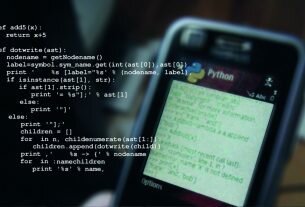Question or problem about Python programming:
# I have the dictionary my_dict
my_dict = {
'var1' : 5
'var2' : 9
}
r = redis.StrictRedis()
How would I store my_dict and retrieve it with redis. For example, the following code does not work.
#Code that doesn't work
r.set('this_dict', my_dict) # to store my_dict in this_dict
r.get('this_dict') # to retrieve my_dict
How to solve the problem:
Solution 1:
You can do it by hmset (multiple keys can be set using hmset).
hmset("RedisKey", dictionaryToSet)
import redis
conn = redis.Redis('localhost')
user = {"Name":"Pradeep", "Company":"SCTL", "Address":"Mumbai", "Location":"RCP"}
conn.hmset("pythonDict", user)
conn.hgetall("pythonDict")
{'Company': 'SCTL', 'Address': 'Mumbai', 'Location': 'RCP', 'Name': 'Pradeep'}
Solution 2:
you can pickle your dict and save as string.
import pickle
import redis
r = redis.StrictRedis('localhost')
mydict = {1:2,2:3,3:4}
p_mydict = pickle.dumps(mydict)
r.set('mydict',p_mydict)
read_dict = r.get('mydict')
yourdict = pickle.loads(read_dict)
Solution 3:
Another way: you can use RedisWorks library.
pip install redisworks
>>> from redisworks import Root
>>> root = Root()
>>> root.something = {1:"a", "b": {2: 2}} # saves it as Hash type in Redis
...
>>> print(root.something) # loads it from Redis
{'b': {2: 2}, 1: 'a'}
>>> root.something['b'][2]
2
It converts python types to Redis types and vice-versa.
>>> root.sides = [10, [1, 2]] # saves it as list in Redis. >>> print(root.sides) # loads it from Redis [10, [1, 2]] >>> type(root.sides[1])
Disclaimer: I wrote the library. Here is the code: https://github.com/seperman/redisworks
Solution 4:
As the basic answer has already give by other people, I would like to add some to it.
Following are the commands in REDIS to perform basic operations with HashMap/Dictionary/Mapping type values.
- HGET => Returns value for single key passed
- HSET => set/updates value for the single key
- HMGET => Returns value for single/multiple keys passed
- HMSET => set/updates values for the multiple key
- HGETALL => Returns all the (key, value) pairs in the mapping.
Following are their respective methods in redis-py library :-
- HGET => hget
- HSET => hset
- HMGET => hmget
- HMSET => hmset
- HGETALL => hgetall
All of the above setter methods creates the mapping, if it doesn’t exists.
All of the above getter methods doesn’t raise error/exceptions, if mapping/key in mapping doesn’t exists.
Example:
=======
In [98]: import redis
In [99]: conn = redis.Redis('localhost')
In [100]: user = {"Name":"Pradeep", "Company":"SCTL", "Address":"Mumbai", "Location":"RCP"}
In [101]: con.hmset("pythonDict", {"Location": "Ahmedabad"})
Out[101]: True
In [102]: con.hgetall("pythonDict")
Out[102]:
{b'Address': b'Mumbai',
b'Company': b'SCTL',
b'Last Name': b'Rajpurohit',
b'Location': b'Ahmedabad',
b'Name': b'Mangu Singh'}
In [103]: con.hmset("pythonDict", {"Location": "Ahmedabad", "Company": ["A/C Pri
...: sm", "ECW", "Musikaar"]})
Out[103]: True
In [104]: con.hgetall("pythonDict")
Out[104]:
{b'Address': b'Mumbai',
b'Company': b"['A/C Prism', 'ECW', 'Musikaar']",
b'Last Name': b'Rajpurohit',
b'Location': b'Ahmedabad',
b'Name': b'Mangu Singh'}
In [105]: con.hget("pythonDict", "Name")
Out[105]: b'Mangu Singh'
In [106]: con.hmget("pythonDict", "Name", "Location")
Out[106]: [b'Mangu Singh', b'Ahmedabad']
I hope, it makes things more clear.
Solution 5:
If you want to store a python dict in redis, it is better to store it as json string.
import redis
r = redis.StrictRedis(host='localhost', port=6379, db=0)
mydict = { 'var1' : 5, 'var2' : 9, 'var3': [1, 5, 9] }
rval = json.dumps(mydict)
r.set('key1', rval)
While retrieving de-serialize it using json.loads
data = r.get('key1')
result = json.loads(data)
arr = result['var3']
What about types (eg.bytes) that are not serialized by json functions ?
You can write encoder/decoder functions for types that cannot be serialized by json functions. eg. writing base64/ascii encoder/decoder function for byte array.
Solution 6:
One might consider using MessagePack which is endorsed by redis.
import msgpack
data = {
'one': 'one',
'two': 2,
'three': [1, 2, 3]
}
await redis.set('my-key', msgpack.packb(data))
val = await redis.get('my-key')
print(msgpack.unpackb(val))
# {'one': 'one', 'two': 2, 'three': [1, 2, 3]}
Using msgpack-python and aioredis
Solution 7:
An other way you can approach the matter:
import redis
conn = redis.Redis('localhost')
v={'class':'user','grants': 0, 'nome': 'Roberto', 'cognome': 'Brunialti'}
y=str(v)
print(y['nome']) #<=== this return an error as y is actually a string
conn.set('test',y)
z=eval(conn.get('test'))
print(z['nome']) #<=== this really works!
I did not test it for efficiency/speed.
Solution 8:
The redis SET command stores a string, not arbitrary data. You could try using the redis HSET command to store the dict as a redis hash with something like
for k,v in my_dict.iteritems():
r.hset('my_dict', k, v)
but the redis datatypes and python datatypes don't quite line up. Python dicts can be arbitrarily nested, but a redis hash is going to require that your value is a string. Another approach you can take is to convert your python data to string and store that in redis, something like
r.set('this_dict', str(my_dict))
and then when you get the string out you will need to parse it to recreate the python object.
Solution 9:
HMSET is deprecated. You can now use HSET with a dictionary as follows:
import redis
r = redis.Redis('localhost')
key = "hashexample"
queue_entry = {
"version":"1.2.3",
"tag":"main",
"status":"CREATED",
"timeout":"30"
}
r.hset(key,None,None,queue_entry)
Solution 10:
Try rejson-py which is relatively new since 2017. Look at this introduction.
from rejson import Client, Path
rj = Client(host='localhost', port=6379)
# Set the key `obj` to some object
obj = {
'answer': 42,
'arr': [None, True, 3.14],
'truth': {
'coord': 'out there'
}
}
rj.jsonset('obj', Path.rootPath(), obj)
# Get something
print 'Is there anybody... {}?'.format(
rj.jsonget('obj', Path('.truth.coord'))
)
# Delete something (or perhaps nothing), append something and pop it
rj.jsondel('obj', Path('.arr[0]'))
rj.jsonarrappend('obj', Path('.arr'), 'something')
print '{} popped!'.format(rj.jsonarrpop('obj', Path('.arr')))
# Update something else
rj.jsonset('obj', Path('.answer'), 2.17)


